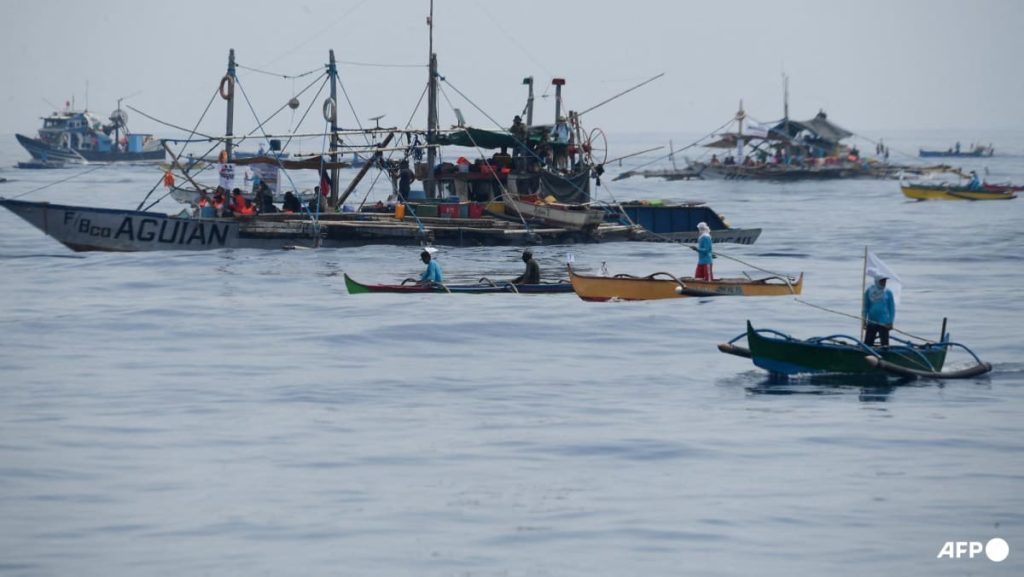A group of civilians on Philippine fishing boats embarked on a trip to Scarborough Shoal, a reef controlled by China, to distribute provisions to Filipino fishermen and assert the country’s rights in the disputed waterway. This journey followed a recent incident where China Coast Guard vessels fired water cannons at Philippine government boats in the same area. About 200 people, waving Philippine flags and chanting anti-China slogans, boarded commercial fishing vessels escorted by outriggers and were met by a lone Philippine Coast Guard boat which provided food and fuel to the fishermen.
The convoy of fishing boats dropped orange buoys marked “WPS is Ours” in reference to the West Philippine Sea, Manila’s designation for the waters west of the Philippines in the South China Sea. The convoy group announced plans to continue distributing supplies to Filipino fishermen in the vicinity of Panatag Shoal, another disputed area in the region. The Philippine Coast Guard in Manila announced plans to send more vessels to provide escort for the convoy during their mission. The spokesman for the group stated that there was no Chinese presence in the area where they distributed assistance, but avoided disclosing the exact location of the operation.
The Scarborough Shoal, known as Panatag in the Philippines, has been a point of contention between China and the Philippines since Beijing seized control of it in 2012. The reef, which is rich in fish, is located about 240km west of Luzon, the main Philippines island, and nearly 900km from Hainan, the closest major Chinese land mass. The presence of Chinese vessels near the shoal has been reported, prompting the convoy to be cautious on their mission. The civilians on board the fishing boats were determined to assert Filipino rights in the region despite the tensions with China over territorial disputes in the South China Sea.
The Philippines has been actively asserting its claims in the disputed waters through diplomatic channels and military presence in the region. Recent incidents, such as the water cannon confrontation and the deployment of commercial fishing vessels with civilian escorts, illustrate the ongoing tensions in the area. The convoy’s mission to provide assistance to Filipino fishermen in the contested waters is a bold move to showcase national sovereignty and resilience in the face of Chinese encroachment. It also serves as a reminder of the complexities and challenges in the South China Sea dispute, where overlapping territorial claims and strategic interests are at play.
The involvement of civilians in maritime activities in the disputed waters adds a new dimension to the conflict and raises questions about the role of non-state actors in asserting national claims in the South China Sea. The use of fishing boats as a means to challenge territorial control and distribute aid to local fishermen highlights the vulnerabilities and opportunities in the current maritime environment. The actions of the convoy demonstrate the strong sentiments and determination of Filipino citizens to protect their rights and resources in the face of foreign threats and incursions. As the situation in the South China Sea continues to evolve, the role of civilian actors in shaping regional dynamics and influencing government policies will be a key factor to watch in the coming years.













